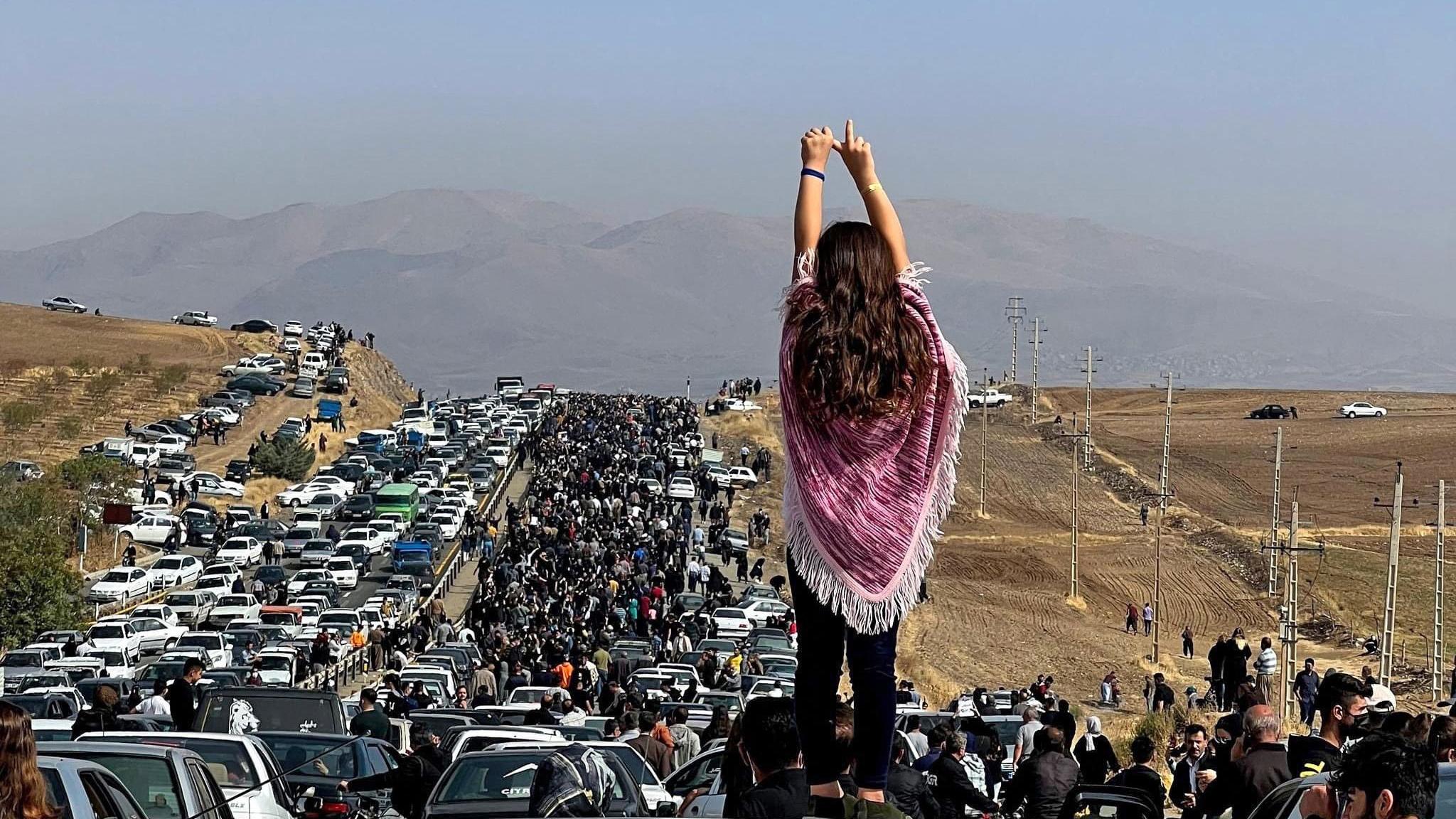
Stand in solidarity with the people of Iran in their struggle for human and democratic rights, democracy, and social justice!
Since the murder of Ms. Mahsa Amini, a 22-year-old woman who had been visiting Tehran with her family, in the custody of the so-called “Morality Police”, in September 2022, a massive popular movement under the banner of “Woman, Life, Freedom” has spread throughout the whole country.
Ms. Amini had been detained by the regime’s morality police for allegedly having broken the rules on what the regime deems to be appropriate dress for women in public.
Over the past five months, Iranian people – with women and youth often at the forefront – have been taking to the streets across the country, despite the increasingly brutal clampdown by the security forces who are acting on the commands of the regime’s leaders.
According to the latest statistics from human rights organisations; at least 500 people, including 70 minors, are known to have been killed – and hundreds more injured and maimed – during the current wave of unrest. More than 20,000 people have been arrested in connection with the protests during the same period.
Four of the detained protesters have been executed in December and early January. More than 100 other detainees have been sentenced to death and are at imminent risk of execution. Fortunately, in the last five weeks, none of the detained protesters are reported to have been executed. This is mainly due to the international outcry that followed the last execution, along with protests and appeals from around the world for a halt to the other death sentences being carried out. It is very clear that the Islamic Republic dictatorship is feeling the heat and pressure in this respect, at least for now.
The executions follow a tragically familiar pattern in Iran where the accused have no access to lawyers or family members and are subject to horrific beatings and torture throughout their detention. “Confessions”, which are then publicly broadcasted via regime media, are routinely extracted through torture and have no real evidential value.
The so-called trials in Iran continue to fall well below international legal standards, despite the original insistence of the authorities in Iran that all of those convicted would have the chance to appeal against their charges and sentences.
Iranian trade unionists – who themselves have been long campaigning for a living wage, job security, trade union rights, and fair working conditions – have voiced their support for the immediate and unconditional release of all detained protesters, an end to all executions, as well as respect for all ILO conventions guaranteeing trade unions rights and particularly Conventions 87 and 98.
Iranian trade unionists, progressive political campaigners, and national democratic forces have warned against any foreign intervention in Iran or action that would lead to bloodshed and war. They do not wish for the tragedies in Iraq, Libya, and Syria – or even worse – to be visited upon Iran.
While united in their contempt for the Islamic Republic dictatorship and desire to see its end; they firmly draw the red line at “regime change” or a foreign intervention in Iran, under any pretext, and the disaster this would entail for the already long-suffering people of Iran.
CODIR based on a careful examination of developments since September believes that the “Woman, Life, Freedom” movement has created a fundamentally new reality in the country. Despite the vicious clampdown by the regime and the lull in protests, which is to be expected, it is clear that Iran is no longer the Iran of September 2022 – and can never go back to being so. The protesting demonstrators, particularly women and youth, have for the first time in the past 40 years effectively challenged the authority of the regime to control the country – causing its hitherto iron grip to noticeably weaken. Even by estimates generous to the regime, at least 80% of the population is now resolutely opposed to the continuation of the theocratic dictatorship and the prevailing mood amongst the Iranian public, despite the horrendous repression, is one of defiance. This simply cannot be undone by the regime – nor can the hopes and enduring spirit of the Iranian people be quashed. Thus, change in Iran not only remains clearly on the horizon… It is now inevitable.
CODIR believes that the people of Iran have shown themselves to be more than capable of confronting, challenging, and ultimately bringing an end to dictatorship and tyranny in Iran. This belief is rooted in the contemporary history of Iran, throughout which any progressive change has emanated from and been brought about by the people of Iran – often against seemingly unsurmountable odds. Conversely, when foreign intervention has occurred this has meant catastrophe for Iran and its people, setting the country’s progressive movement back by decades in each instance – whether in the British-backed coup of Reza Khan in 1920; the MI6/CIA-engineered overthrow of the democratic Prime Minister, Mohammad Mossadegh, in the 1953 coup; or the much-overlooked connivance of Western intelligence agencies with the Khomeini regime in the early-1980s, which brought about the defeat of the popular Iranian Revolution.
CODIR is determined to further its decades-long work with the trade union and labour movement, as well as forces for peace around the world, to inform, raise awareness, and mobilise public opinion in Britain and internationally in defence of the struggle of the Iranian people for peace, human and democratic rights, and social justice – as well as to be able to determine the future of their country free from the threat of foreign intervention, war, and the imposition of continued tyranny.
Central Executive Council
CODIR
Saturday 3 February 2023












 Posted in
Posted in 











